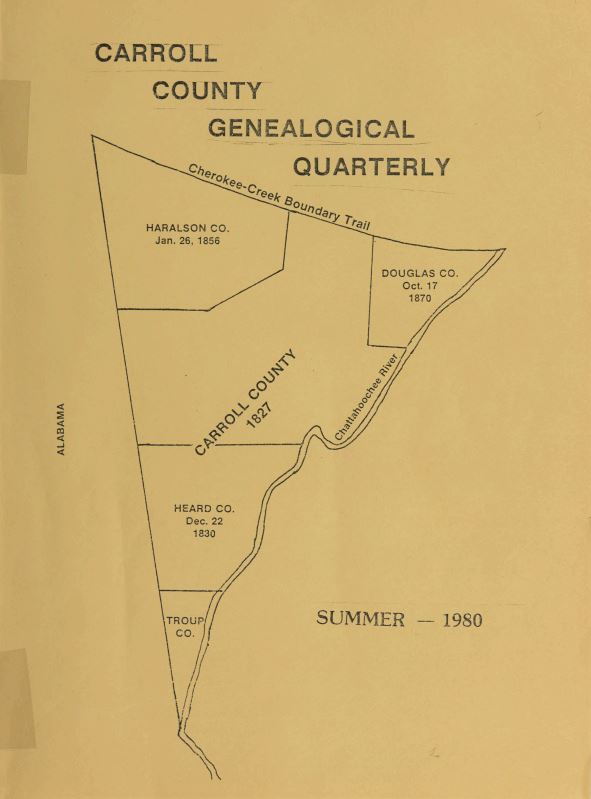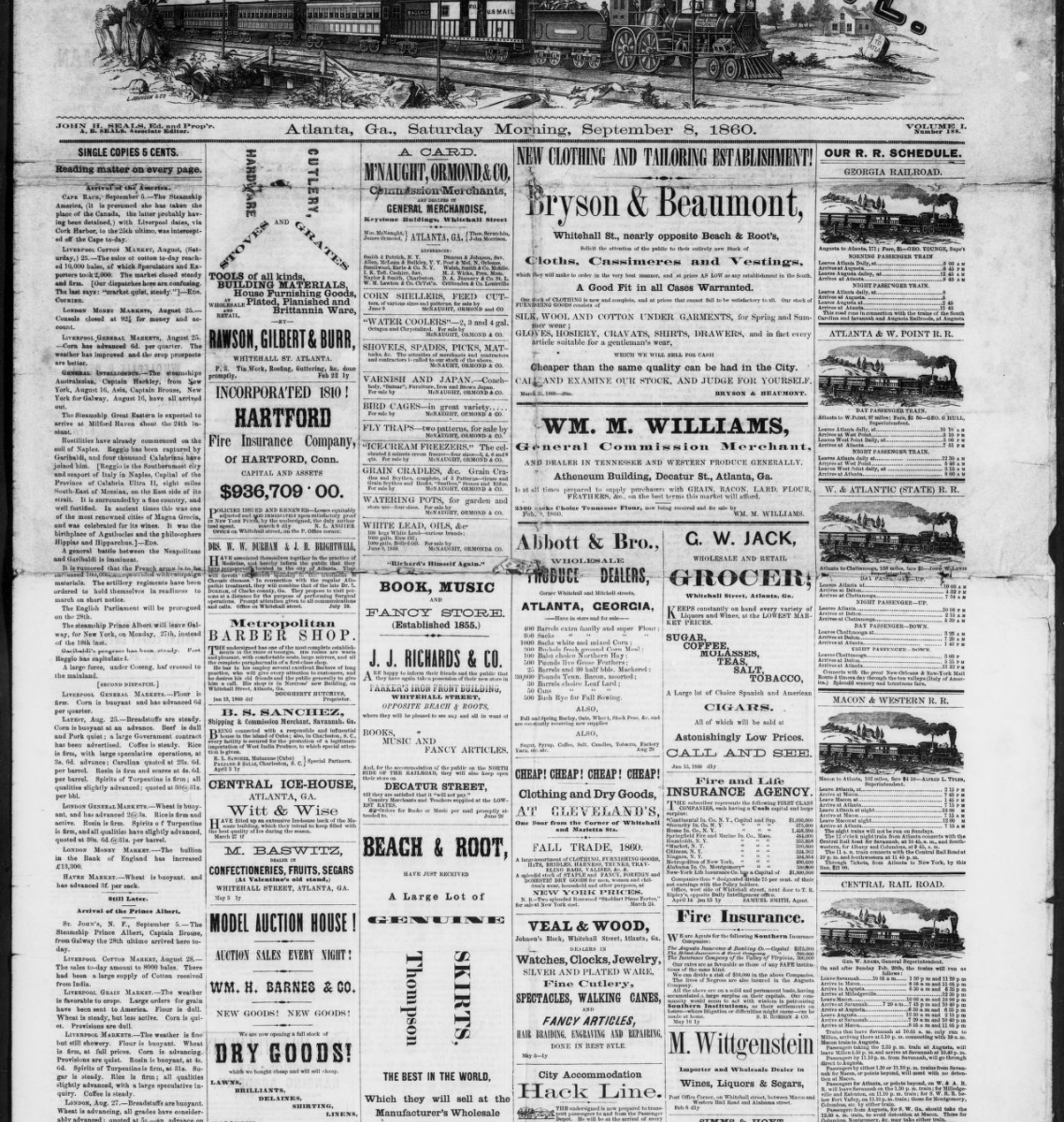The Digital Library of Georgia (DLG) is pleased to announce the availability of volumes 1 and 2 of Carroll County Georgia Cemeteries at https://dlg.usg.edu/collection/uwg_ccgc and 53 issues of the Carroll County Genealogical Quarterly published from 1980 to 1994 at https://dlg.usg.edu/collection/uwg_ccgq. These resources belong to the University of West Georgia Special Collections and have been made available online thanks in part to the DLG’s Competitive Digitization grant program, a funding opportunity intended to broaden DLG partner participation for statewide historic digitization projects.
Carroll County Georgia Cemeteries is a guide to cemeteries in the western (volume 1) and eastern (volume 2) parts of the county published by the Carroll County Genealogical Society. Together they provide transcriptions of names as they appear on tombstones within the 292 cemeteries located in Carroll County. The digitization of these volumes makes family names keyword searchable, which greatly aids researchers’ ability to perform genealogical research in their own homes and other settings.
The Carroll County Genealogical Quarterly (1980-present) is another publication of the Carroll County Genealogical Society that compiles, collects, and creates genealogical information for Carroll County, Georgia. The University of West Georgia’s Ingram Library’s Special Collections has a complete set of these newsletters in which members have written articles on their research into various aspects of the county’s history, which includes information on the land lottery of 1827, Carroll County’s old militia districts, early post offices and postmasters, early settlers and marriages, rural churches and cemeteries, family histories and genealogies, wills and family records transcribed from bibles, census records, ownership of enslaved people of African descent, military history, tax digests, and more. The Carroll County Genealogical Quarterly is an invaluable resource that can be used in learning, teaching, and research of Carroll County history by students, genealogists, local historians, and descendants of Carroll County who live outside of the area.
Keith Bohannan, a professor in the department of history at the University of West Georgia notes:
“The books and periodicals being digitized were only published in small numbers and are not easily available to the public outside of the county library or Georgia State Archives. The resources being digitized will be very helpful to people both inside and outside of the community doing genealogical or historical research.”
About the University of West Georgia Special Collections
University of West Georgia Special Collections serves as the repository for rare materials in the Irvine Sullivan Ingram Library, housing manuscripts, books, films, photographs, sound recordings, and other formats in a number of specialized areas. Special Collections also holds the University Archives. Through these collections, the department supports the research, teaching, and service mission of the university and its constituents. Visit University of West Georgia Special Collections at https://www.westga.edu/library/special-collections/index.php
About the Carroll County Genealogical Society
The mission of the Carroll County Genealogical Society is to promote genealogical research among members of our society and the Carroll County Georgia community. Visit the Carroll County Genealogical Society at http://www.ccgsga.org/
About the Digital Library of Georgia
Based at the University of Georgia Libraries, the Digital Library of Georgia https://dlg.usg.edu/ is a GALILEO initiative that collaborates with Georgia’s libraries, archives, museums and other institutions of education and culture to provide access to key information resources on Georgia history, culture, and life. This primary mission is accomplished through the ongoing development, maintenance and preservation of digital collections and online digital library resources. DLG also serves as Georgia’s service hub for the Digital Public Library of America and as the home of the Georgia Newspaper Project, the state’s historic newspaper microfilming project.



